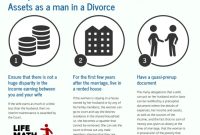This question takes us on a compelling journey, unveiling the profound legal implications of this pervasive issue. Domestic violence, a heinous crime that shatters lives, carries severe legal consequences aimed at safeguarding victims and holding offenders accountable. Join us as we delve into the complexities of the legal system’s response to this societal scourge.
Table of Contents
ToggleEmotional and Psychological Consequences
Domestic violence has a profound impact on the emotional and psychological well-being of victims. The constant fear, uncertainty, and abuse can lead to a range of psychological issues, including:
- Depression: Victims of domestic violence often experience feelings of hopelessness, worthlessness, and despair.
- Anxiety: The constant threat of violence can lead to chronic anxiety and fear.
- Post-Traumatic Stress Disorder (PTSD): Domestic violence can trigger PTSD, which involves symptoms such as flashbacks, nightmares, and avoidance behaviors.
- Low Self-Esteem: The abuse and control tactics employed by perpetrators can erode victims’ self-worth and self-confidence.
- Isolation: Victims of domestic violence may withdraw from social activities and isolate themselves from friends and family due to shame, fear, or threats from the abuser.
The psychological effects of domestic violence can be long-lasting and debilitating. Victims may struggle to maintain healthy relationships, hold down jobs, and participate fully in society. It is crucial for victims to seek support and treatment to address the emotional and psychological trauma they have experienced.
Legal Consequences
Domestic violence is a serious crime with severe legal consequences. If you are the victim of domestic violence, it is important to know your rights and the legal options available to you.
Criminal Charges
The criminal charges that can be brought against perpetrators of domestic violence vary depending on the specific circumstances of the case. Some of the most common charges include:
- Assault and Battery: Physical harm or threat of harm to another person.
- Aggravated Assault: An enhanced form of assault, typically involving a weapon or severe injury.
- Domestic Violence: Specific charges related to violence within a domestic setting.
- Stalking: Persistent and unwanted attention that causes fear or distress.
- Murder: In extreme cases, domestic violence can escalate to homicide.
Restraining Orders
A restraining order is a court order that prohibits the perpetrator of domestic violence from contacting or coming near the victim. Restraining orders can be an important tool for protecting victims of domestic violence, but it is important to remember that they are not always effective.
To obtain a restraining order, you must file a petition with the court. The petition must include information about the abuse you have suffered and the reasons why you need a restraining order.
Penalties for Violating a Restraining Order
Violating a restraining order is a serious crime. The penalties for violating a restraining order can vary depending on the jurisdiction in which the violation occurs, but they typically include imprisonment and fines.
Child Custody Issues
Domestic violence can have serious implications for child custody arrangements. Courts prioritize the safety and well-being of children, and evidence of domestic violence can significantly impact custody decisions. Protective measures, such as supervised visitation or sole custody to the non-abusive parent, may be implemented to safeguard the children.
Social and Economic Consequences
Domestic violence has far-reaching consequences that extend beyond the physical and emotional well-being of victims. It also inflicts significant social and economic burdens on individuals, families, and communities.
Social Stigma and Isolation
Victims of domestic violence often face social stigma and isolation. They may be shamed or blamed for the abuse, which can lead to feelings of guilt, shame, and isolation. This can make it difficult for victims to seek help or support, perpetuating the cycle of violence.
Financial Impact
Domestic violence also has a significant financial impact on victims. Medical expenses, lost wages, and housing instability are just a few of the financial costs associated with domestic violence. Victims may also experience long-term financial difficulties as a result of the abuse, such as lost earning potential or reduced job opportunities.
Impact on Children
Children who witness or experience domestic violence are also profoundly affected. They may experience a range of psychological and behavioral problems, including anxiety, depression, and post-traumatic stress disorder (PTSD). They may also be at an increased risk for perpetrating or becoming victims of violence in the future.
Support and Resources for Victims
Navigating the legal and emotional aftermath of domestic violence can be daunting. It is crucial for victims to seek support and resources to aid in their recovery and protect their rights.
Legal Assistance
Many organizations provide legal assistance to victims of domestic violence. Legal aid societies, pro bono programs, and domestic violence advocacy groups can offer guidance and representation in legal matters, including obtaining restraining orders and navigating custody disputes.
Support Services
Support services such as counseling, support groups, and shelters can provide crucial assistance to victims. These services offer a safe space for victims to heal and rebuild their lives, free from the threat of violence.
Conclusion: What Are The Legal Consequences Of Domestic Violence?
In conclusion, the legal consequences of domestic violence serve as a crucial deterrent and provide a pathway to justice for victims. By understanding these consequences, we can empower individuals to break free from the cycle of abuse and create a society where violence has no place. It is our collective responsibility to uphold the law and ensure that perpetrators face the full extent of legal repercussions for their actions.
Frequently Asked Questions
What are the most common criminal charges associated with domestic violence?
Assault, battery, and stalking are among the most prevalent criminal charges brought against perpetrators of domestic violence.
How can victims obtain a restraining order?
Victims can file for a restraining order through the court system, which legally prohibits the abuser from contacting or coming near them.
What are the penalties for violating a restraining order?
Violating a restraining order is a serious offense that can result in fines, imprisonment, or both.
By understanding the legal consequences of domestic violence and seeking appropriate support, victims can navigate this challenging time with greater clarity and security.




